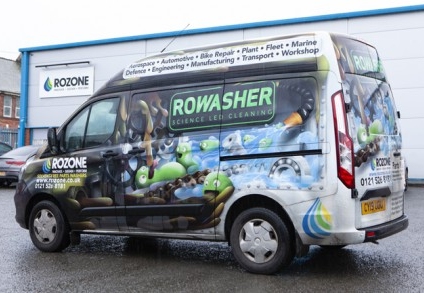Mechanical Testing at Rotech Laboratories
October 03, 2016At Rotech Laboratories, mechanical testing has long been an established mainstay of our business. As well as providing a wide range of traditional testing for metals, we are also well equipped to provide specialist/bespoke mechanical testing solutions to suit each customer. We can provide mechanical testing for metals at ambient, sub-zero and elevated temperatures to best determine a materials suitability for a specific application.
The Range of Tests Involved in Mechanical Testing
Mechanical testing is essential for determining whether a material or part is suitable for its intended mechanical application. A mechanical testing programme can include a number of tests, including tensile testing, hardness testing, impact testing and weld testing.
1. Hardness and micro-hardness testing
Hardness testing and micro-hardness testing is used to measure the resistance of metals and materials to permanent change of shape when a force is applied. Hardness tests often measure the deformation caused to metals by indentation, but hardness testing may also measure resistance to cutting, scratching and abrasion. Methods of hardness testing include Knoop and Vickers micro-hardness testing, Rockwell standard testing, Rockwell superficial testing and Brinell testing.
2. Impact testing
Impact testing determines a material’s ability to resist high-rate loading. Simply put, impact testing measures the impact resistance as one object strikes another at a high speed. The Charpy impact test is a standardised impact test that is used to determine the amount of energy absorbed by a material when it is struck at speed.
3. Weld testing
Weld testing is needed to test the quality, correctness and strength of welds when they are completed; this can be absolutely integral in guaranteeing the integrity and safety of equipment. The majority of weld testing is categorised as destructive testing or non-destructive testing. Destructive testing is usually the cheaper method of inspection and common tests include macro etch testing and root and face bending tests. Non-destructive weld tests such as dye penetrant testing can be carried out in most laboratories, but ultrasonic testing and radiographic testing require expensive specialist equipment.
4. Bend testing
Bend testing is used to work out the strength and ductility of materials by bending the material to a certain point. Bend tests are often used as a quality control test for butt-welded joints.
5. Tensile testing
Tensile testing determines the resistance of materials to pulling and stretching forces; it’s important to understand how much tension a part or material can take before it fails Common methods of tensile testing include: wedge tensile testing, weld tensile testing, axial tensile testing, castings tensile testing and hot tensile testing.
If you would like to find out more information about the range of mechanical tests that Rotech can provide for your business, or to learn more about the wide range of other tests that we can carry out, please contact us by calling +44 (0)121 505 4050 and our friendly team will be glad to assist you.
< Back

